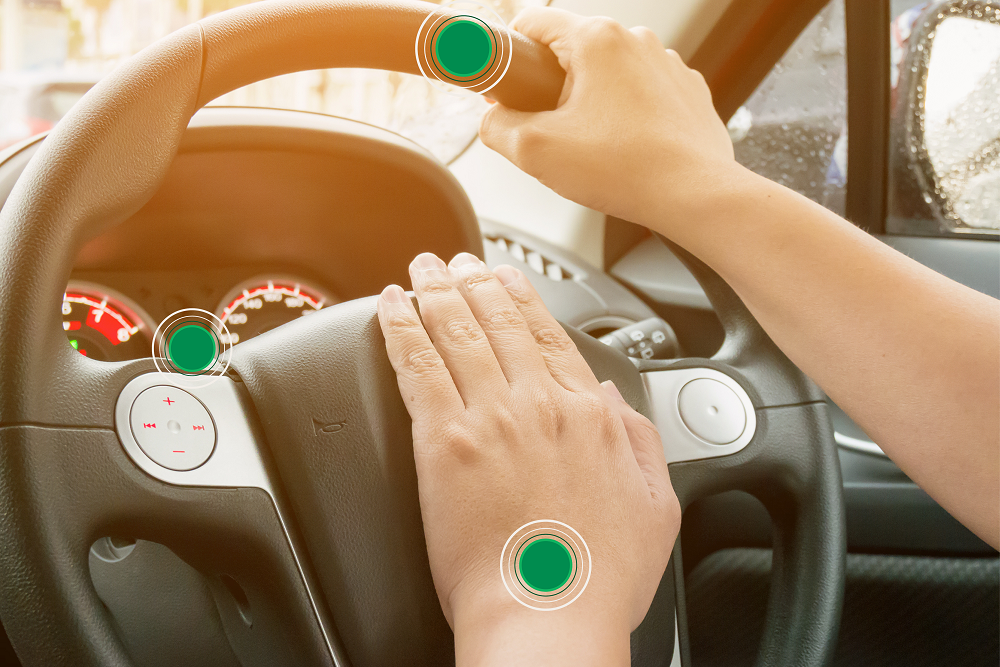
Understanding Road Rage and Aggressive Driving
As South Africans deal with load shedding and the inconvenience and stress it causes, road rage and aggressive driving are growing concerns we should not ignore. They pose significant threats to driver safety and often escalate into serious incidents, sometimes even leading to violent confrontations or deadly accidents. Here at DEKRA, we believe understanding and addressing these issues is paramount to fostering safer road environments. Because of this, today we'll take a look at a few aspects of aggressive driving and road rage. By examining their root causes, recognising the inherent dangers, and offering effective strategies to mitigate these behaviours, we wish to equip you with the knowledge and tools needed to navigate the roads with confidence and calmness.
What exactly are road rage and aggressive driving?
- Aggressive driving is a category of dangerous on-road behaviour characterised by a disregard for safety and traffic regulations. This includes a variety of traffic offences aimed at placing other road users at risk, such as tailgating, speeding, weaving in and out of traffic, not using signals when changing lanes, running red lights or stop signs, brake checking, and blocking cars attempting to pass or change lanes. While not as violent or confrontational as road rage, aggressive driving can quickly escalate into a road rage incident if left unchecked.
- Road rage is a term that describes a range of aggressive or violent behaviours exhibited by drivers in response to perceived slights or annoyances on the road. It typically goes beyond mere aggressive driving, often escalating into acts that directly endanger others. Road rage might include behaviours such as yelling at other drivers, making obscene gestures, physically threatening or assaulting another driver or passenger, intentionally ramming another vehicle, or running another car off the road. It's important to remember that road rage is not just an extreme form of aggressive driving, it is criminal behaviour and can be punishable by law.

Photo credit: Joshua Wordel on Unsplash
Understanding Road Rage and Aggressive Driving - Psychology Behind Both
Understanding the psychology behind aggressive driving and road rage is a complex undertaking that involves multiple factors. One significant element is stress. Load shedding, crowded highways, and long commuting distances can all contribute to high stress levels in drivers. When drivers are already experiencing stress in other areas of their lives, this added tension can lead to a lack of patience and an increase in anger, both of which can manifest as aggressive driving or road rage.
Beyond stress, certain personality traits have also been linked to aggressive driving and road rage. People with competitive, impulsive, or risk-taking tendencies are more likely to exhibit aggressive driving behaviours. Those with a sense of superiority or entitlement may be less likely to respect other road users' rights, which can also lead to aggressive behaviours. Furthermore, individuals who struggle with anger management or have a tendency toward violent behaviour are more likely to escalate to road rage. It's important to note, however, that these traits alone do not cause aggressive driving or road rage. Rather, they interact with situational stressors and perceived provocations on the road to heighten the risk of such behaviour.
A research team from the University of Maryland, College Park conducted a study involving more than 1 000 participants. The study examined the link between driving habits and personality traits. The findings suggested that individuals with high levels of impulsivity, aggression, and hostility tended to report higher instances of road rage behaviours.
"Our findings suggest that road rage is associated with certain personality types, including those who are more impulsive, aggressive, and hostile. These individuals may be more likely to become angry and aggressive when they perceive that they are being wronged or inconvenienced on the road."
Read: The Dangers of Talking on the Phone While Driving
The Dangers of Road Rage and Aggressive Driving
- Accidents and collisions: One of the primary dangers is the increased likelihood of causing a road accident. Behaviours such as speeding, tailgating, or weaving in and out of traffic significantly raise the risk of collisions.
- Physical harm: Road rage can escalate into physical violence, potentially leading to injury or even death.
- Psychological trauma: Survivors of road rage incidents or serious accidents caused by aggressive driving may experience emotional trauma, leading to conditions such as post-traumatic stress disorder (PTSD).
- Property damage: Accidents resulting from aggressive driving can cause significant damage to vehicles and other property, leading to high repair costs.
- Increased insurance premiums: Accidents attributed to aggressive driving can lead to an increase in car insurance premiums for the offending driver.
- Legal consequences: Road rage incidents and aggressive driving can lead to legal consequences, including fines, licence suspension, or even imprisonment in severe cases.
- Negative social impact: It can lead to an overall negative societal impact, contributing to an unsafe and stressful driving environment.
- Risk to pedestrians and cyclists: Aggressive driving behaviours and road rage don't only endanger the drivers involved, they also pose a risk to pedestrians and cyclists sharing the road.
- Health risks: The stress associated with aggressive driving can contribute to various health issues, including heart disease, high blood pressure, and other stress-related conditions.

Photo credit: Photo by Takahiro Taguchi on Unsplash
Read: Reducing road accidents: the crucial role of DEKRA vehicle inspections in road safety
Identifying Signs of Aggressive Driving and Road Rage
Recognising aggressive driving and road rage is the first step towards dealing with them effectively. Here are ways to deal with both.
- Stay calm and collected: Maintain your composure and avoid reacting negatively to an aggressive driver. Responding with aggression can escalate the situation and potentially lead to dangerous outcomes.
- Keep your distance: If you notice an aggressive driver, try to put as much distance between your vehicle and theirs as possible. This minimises the risk of a collision and allows you more time to react if necessary.
- Don't engage: Avoid making eye contact or responding to an aggressive driver's gestures or comments. Engaging can be seen as confrontation, which might provoke further aggression.
- Drive defensively: Practise defensive driving techniques. This includes constantly observing your surroundings, anticipating potential issues, following traffic rules, and maintaining a safe following distance.
- Call for help: If you feel threatened by an aggressive driver or witness an act of road rage, contact the authorities. Remember to provide as much information as possible, such as the vehicle's make, model, colour, and licence plate number.
- Stay safe: If an aggressive driver follows you, do not drive home. Head to the nearest police station or a busy public place where you can get help if needed.
At DEKRA, we're dedicated to improving safety on South Africa's roads. By highlighting the issues of road rage and aggressive driving, we hope to encourage a more respectful and considerate driving culture. Awareness, understanding, and appropriate responses to these behaviours are crucial in creating a safer road environment for all users. We firmly believe that with the right knowledge, and a commitment to driving responsibly, we can make our roads safer for all users.